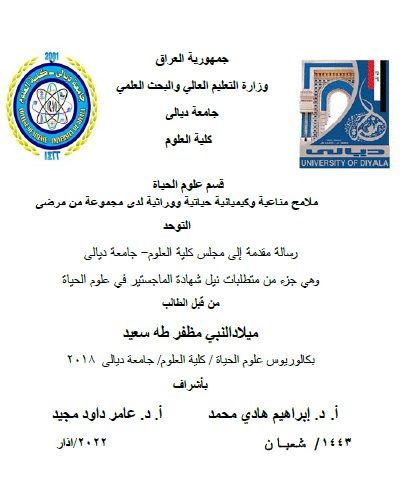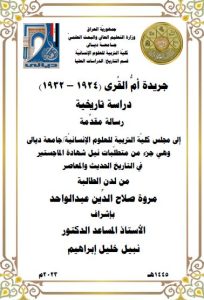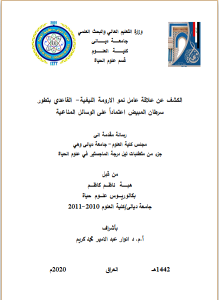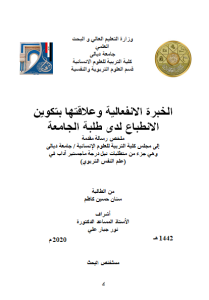Abstract
The current study aimed to evaluate the immune role and some biomarkers of autism patients. Blood were collected from Patients in Ibn Rushd Hospital in Baghdad, and the study was conducted from September 2020 to March 2021, where the immune role in autistic patients was evaluated for measuring the immune indicators. Cluster of differentiation (CD4), Interleukine-1α level (IL-1α) and Interferon gamma (IFN-γ) as well as Tumor necrosis factor-alpha (TNF α) and measured by enzyme-linked immunosorbent assay (ELISA) technique.
The biochemical indicators included Alkaline phosphatase (ALP), Alanine aminotransferase (ALT), Aspartate aminotransferase (AST), Total Bilirubin (TBIL), and Creatinine) and hematological indicators (Platelets (PLT), Red blood cells (RBC), Hemoglobin (HGB), and white blood cells (WBC).
The study included 90 samples, including 60 samples for autistic patients (30 males and 30 females) with an age range ranging from (2 to 14 years), 30 samples were collected from healthy 15 males and 15 females within an age range (2 to 14 years), they were used as a control group that samples of autistic patients were collected before giving them treatment. After the patients consent.
The study showed that there is no effect of age and gender on autism. Was observed that the immunological indicators (CD4, IL_1α, IFN_γ, and TNF_α) were elevated in autistic patients (8.68 ± 3.06, 5.69 ± 2.50, 606.51 ± 286.62 and 84.07 ± 41.86) compared to healthy subjects (4.56 ± 1.99, 2.45 ± 1.11, 378.40 ± 126.35 and 29.80±13.76). The results of the current study showed an increase in the chemical indicators (ALP, ALT, AST, and TBIL) in autistic patients compared to healthy controls, and also showed a low level of creatinine in autistic patients compared to healthy controls.
The results of the current study also showed a higher level of platelets (PLTs) in autistic patients compared to healthy controls, and a lower level of (RBC, HGB) in autistic patients compared to healthy controls.
The results of the current study showed that (ALP (95%), TBIL (95%), AST (80%), TNF-α (78%), Creatinine (76%), IFN-γ (75%), IL-1α (72%), and CD4(72%)) is more sensitive in diagnosing autism. It was also found that there significant correlations between the immune indicators (P<0.05).
The results of current study revealed no significant different in chromosomes between patients and controls. The results of the current study showed an increase in the chemical indicators (ALP, ALT, AST, and TBIL) in autistic patients compared to healthy controls, and also showed a low level of creatinine in autistic patients compared to healthy controls.
The results of the current study also showed a higher level of platelets (PLTs) in autistic patients compared to healthy controls, and a lower level of (RBC, HGB) in autistic patients compared to healthy controls.
The results of the current study showed that (ALP (95%), TBIL (95%), AST (80%), TNF-α (78%), Creatinine (76%), IFN-γ (75%), IL-1α (72%), and CD4(72%)) is more sensitive in diagnosing autism. It was also found that there significant correlations between the immune indicators (P<0.05).
The results of current study revealed no significant different in chromosomes between patients and controls.





